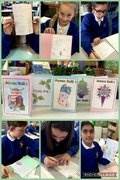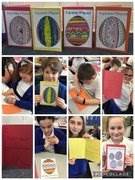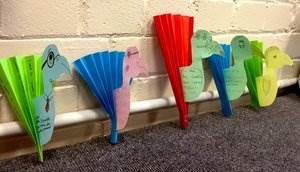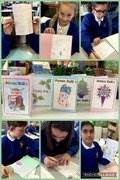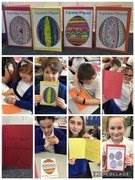French Curriculum
At St Joseph’s, we are committed to developing wonderful young people, driven by the virtues that we teach and live by. With Christ at the centre of all we do, we will offer a school that allows children to succeed, develop friendships and come to know God and themselves. We believe that school should be a safe, exciting place - the best days of your life!
Our Mission:
“Believing in God, ourselves and others”
French is introduced in formal lessons in Key Stage 2.
Children develop their speaking, listening, reading and writing in a modern foreign language, and gain an understanding and respect for French culture and heritage.
Intent
Learning a language enriches the curriculum, helping to create enthusiastic learners and to develop positive attitudes to language learning throughout life. The skills, knowledge and understanding gained contribute to the development of children’s oracy and literacy and to their understanding of their own culture and those of others. Learning a foreign language, as well as the traditions and cultures of another country encourages respect, tolerance and an understanding of others.
As a School of Knowledge, we believe that the early acquisition of French will facilitate the learning of other foreign languages later in life, as well as improving skills in other areas of the curriculum. We aim to prepare children for the KS3 language curriculum to enable them to transfer confidently and successfully into secondary school.
As a School of Opportunity, we are proud to be able to offer our students a range of experiences to enhance their cultural capital, including local penpal exchanges, links with schools in France and an overseas residential. We consider how children of all groups, including SEN, EAL, Pupil Premium and Greater Depth, will access language learning in an engaging and appropriately challenging way.
 Example of Year 6 French: Qu-est ce-que tu portes? Lesson about colours and clothing; structuring sentences with nouns and adjectives.
Example of Year 6 French: Qu-est ce-que tu portes? Lesson about colours and clothing; structuring sentences with nouns and adjectives.
Implementation
Teaching staff use a variety of the following techniques to encourage children to have an active engagement with French, including:
- Games – in order to develop vocabulary through repetition, reading, writing, speaking and listening skills.
- Role-play – these should relate to the situations the children may find themselves in the future.
- Action songs and rhymes – to develop phonetic skills, memory skills and to further vocabulary.
- Reading and writing quality materials.
- ICT programs and websites; the use of ICT to develop communication skills.
We build children’s confidence through praise for any contribution they make in the foreign language, however tentative.
As well as discreet French lessons in KS2, we aim to expose younger cohorts to the language through rhyme, songs and signage around school. The language can be discreetly embedded, so that when children approach their formal lessons in KS2, they are familiar with the sounds and rhythm of French, thereby making them more confident and engaged in their learning.
Additional opportunities for developing speaking, listening, reading and writing in French occur throughout the academic year, including:
- European Day of Languages - 26th Sept.
- French picnic day (TBC) during Summer term.
- Launched Sept 2023: European French Pen-pal exchange programme. This year, 5 Pine will link with CM2 in Saint Joseph Institut, Lyon, France.
- Annual Year 6 residential trip to Paris in February.
Long Term Plan and Progression Documents
Through the high quality first teaching of French, we will see the impact of the subject in the following ways:
- Children will be able to communicate with each other in French.
- Children will become aware that a language has a structure, and that the structure differs from one language to another.
- Children will develop their language through development of the four key skills of speaking, listening, reading and writing.
- Children will enrich their language learning by developing an understanding of the French culture.
- Children will learn how language skills can be applied to a range of languages.
- Children will transfer to KS3 effectively and successfully and will be well prepared to continue and develop their language skills.
Pen-Pal Exchange with Low Moor C of E Primary School, Bradford. 2020 - 2023







